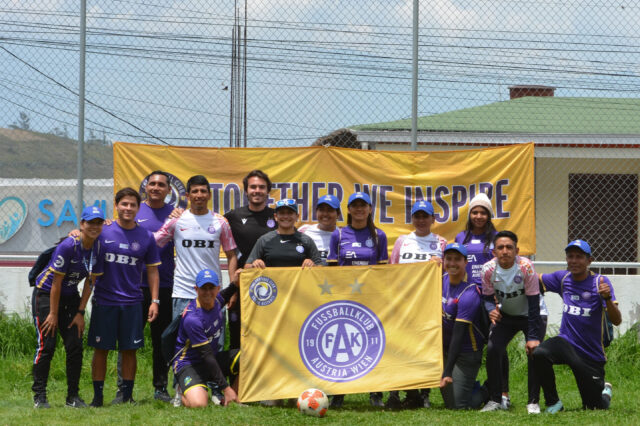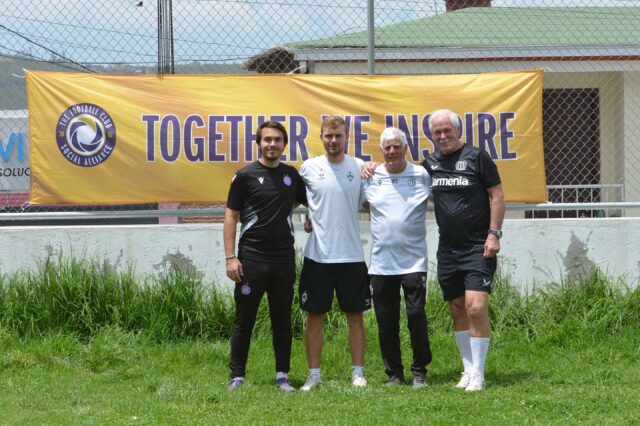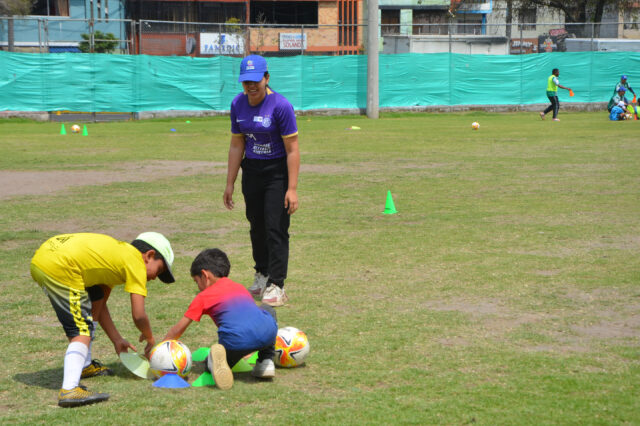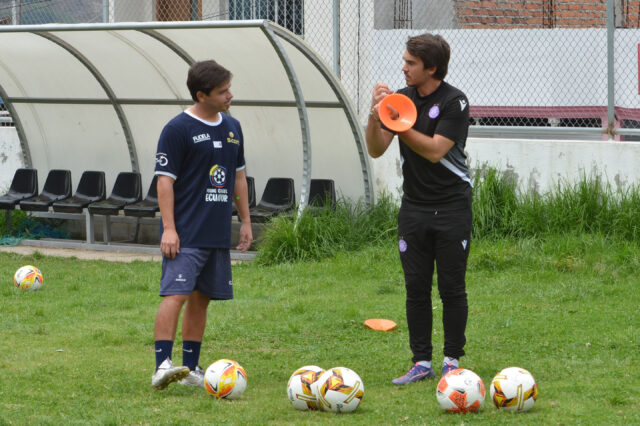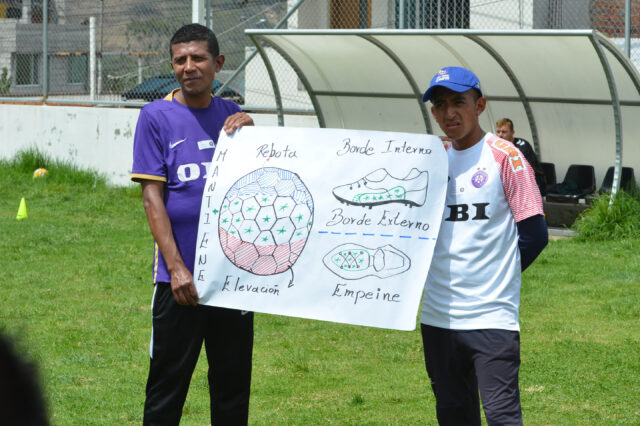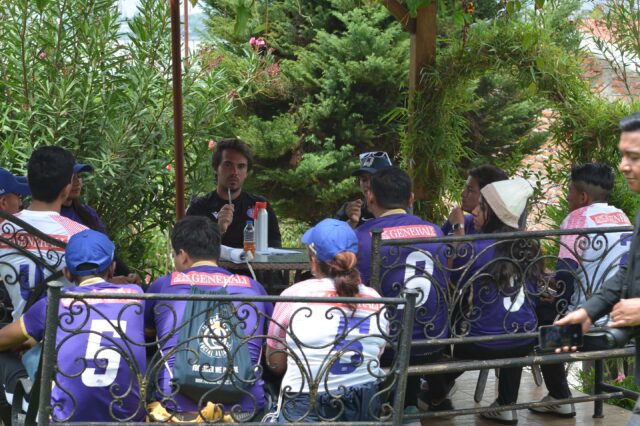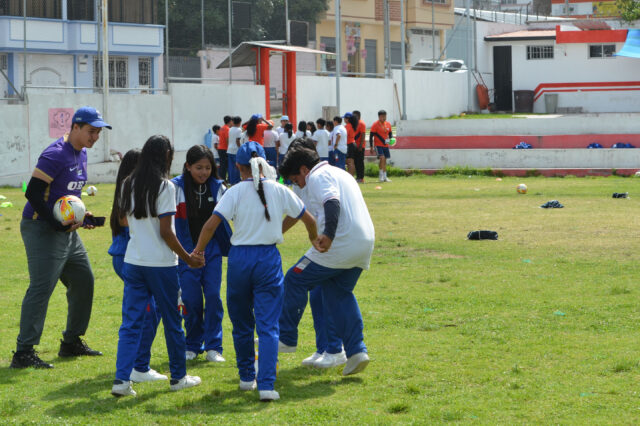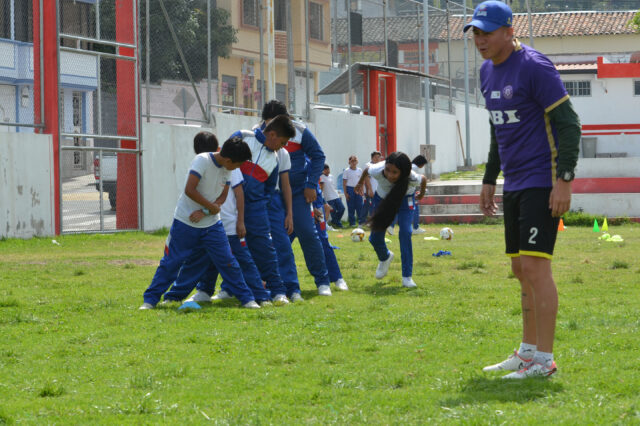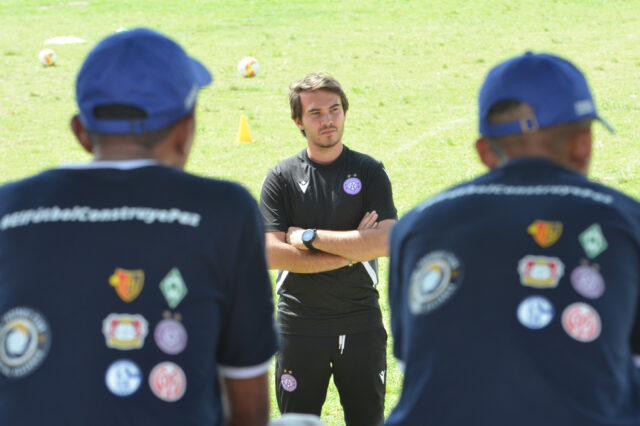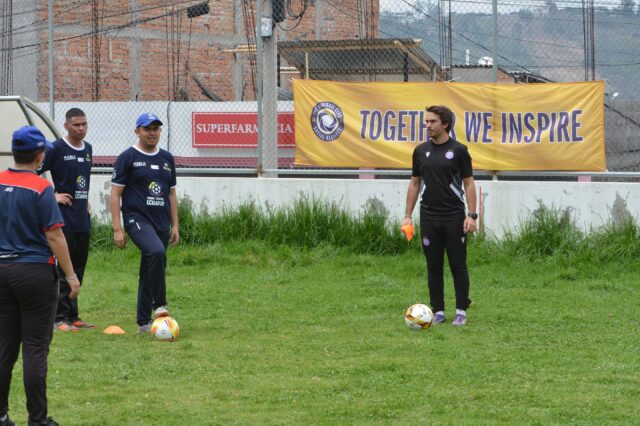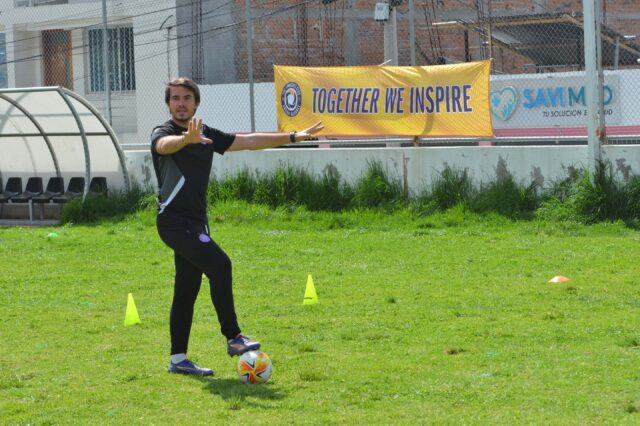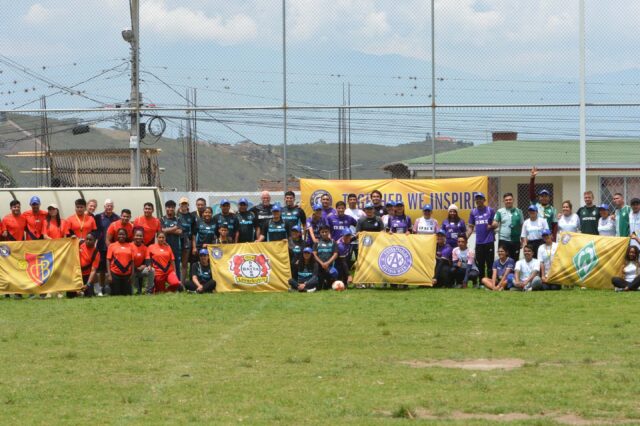 Home
Home
FCSA & Austria educate young coaches in Ecuador
From November 5 to 10, the Football Club Social Alliance (FCSA) trained a total of 46 young coaches who volunteer to help children in vulnerable and violent communities in Ecuador. Austria Wien took part in the project in the person of match analyst and sports scientist Caspar Prill.
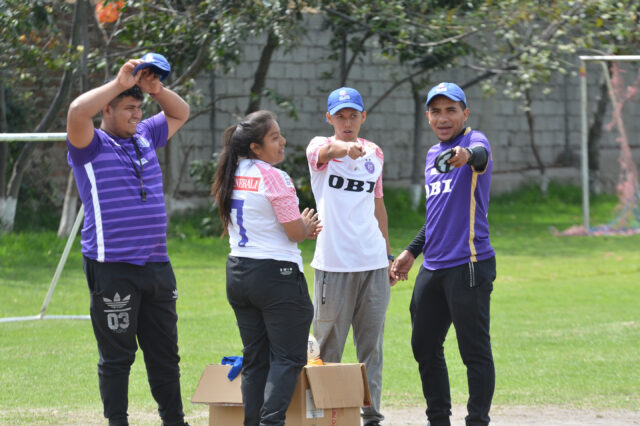
Ecuador was once considered one of the safest countries in South America, but has become increasingly involved in the global drug trade in recent years, leading to a striking increase in violence. Armed robberies and kidnappings are the order of the day, and the murder rate has recently risen continuously throughout the country. At the same time, Ecuador is home to one of the largest refugee communities in the region, mainly from Venezuela and Colombia.
The UN Refugee Agency (UNHCR) and local organizations support more than half a million refugees and migrants in the country, but scarce resources lead to social tensions and the ongoing violence endangers the already vulnerable population groups.
Soccer as violence prevention
In view of this social tension, soccer is intended to promote inclusion and resilience among children and young people. The Football Club Social Alliance (FCSA) held its first training course for young coaches back in 2023. They received theoretical input on training design and pedagogical tips for their daily work with children.
The first module of the new Young Coach training course took place from November 5 to 10. Instructors Willy Schmid (FC Basel 1893), Leander Wasmus (SV Werder Bremen), Peter Quast (Bayer 04 Leverkusen) and - from the Violet side - Caspar Prill traveled to Ibarra in the north of Ecuador.
Inclusion and child protection
In a training session with 120 local children, the 46 Young Coaches were able to put what they had learned directly into practice. Through the workshops with the trainers, they learned how they can use sport and play as a methodology for inclusion and child protection and what an important role they can play as coaches in the lives of the children in their communities.
The highlight of the week was the final festival in Quito, which took place as part of the Football Creates Peace Summit. Lectures and panel discussions were held there with actors from politics and civil society who want to understand and promote the added value of sport in vulnerable communities.
The (virtual) second module of the training is currently starting, which will further deepen the topics and prepare them for the third and final face-to-face module in April 2025.
Quotes
Caspar Prill, Instructor Austria Wien: “It's impressive to see how much positivity the Young Coaches and basically all the people here radiate, even though life is difficult. That's something I definitely want to continue to incorporate into my life. We are always extremely focused and often forget to enjoy what we do.”
Ismenia Iñiguez, UNHCR Ecuador: “The role of the young coaches is crucial because they are in constant contact with children and young people. It is important that they know how to work inclusively and not discriminate against children on the basis of their nationality or other factors. Their attitude and understanding is crucial - not just the theoretical knowledge or technical skills, but above all the daily practice of inclusion.”
Katiuska, Young Coach: “As a Young Coach, you can have an incredible impact on the children in your community. By applying what I have learned, I will be able to take the work in my project to a higher level. The approaches and techniques taught were particularly helpful in promoting inclusion.”
